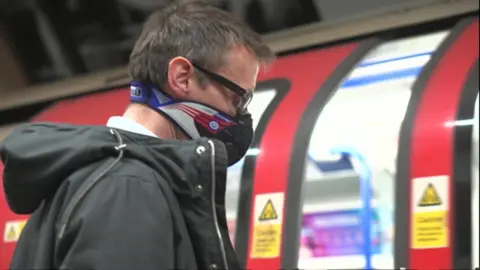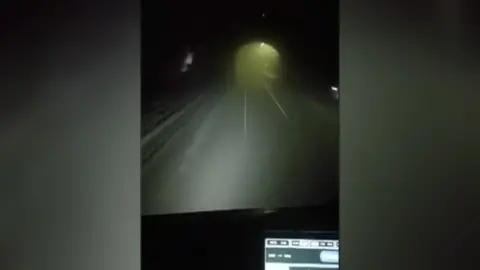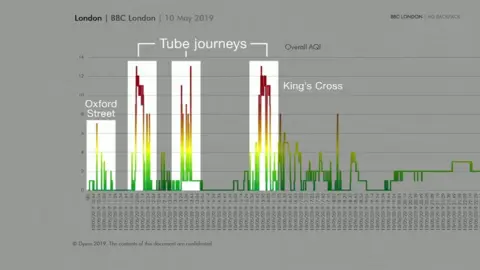Tube dust: Union demands tests into 'toxic' particles

 BBC
BBCStaff on the London Underground are demanding more is done to assess the effects of breathing in Tube dust.
The Aslef union is calling for urgent research into the long-term impact of inhaling the particles.
The main component is iron oxide but traces of quartz, chromium and copper have also been found.
Transport for London says it is "doing all it can to ensure the air was as clean as possible" and it is supporting research into the effects of Tube dust.
 Anonymous
AnonymousBut one driver, who wished to remain anonymous, told me: "Drivers and station staff go home and blow their noses and it's black.
"I know of drivers who have had breathing difficulties, asthma and sinus problems.
"After one shift you can get a cough at the back of your throat. It's common."


The driver provided photos and a video showing the amount of dust in the tunnels.
TfL says it is "trialling innovative new approaches to reducing dust levels" and that drivers working the deep, poorly ventilated tunnels had been given face masks.
The driver sent me a picture of the filters used in the masks before and after use - they are black.
 Anonymous
AnonymousTube dust is made up of very small particles with a diameter of 2.5 microns or less.
Finn Brennan from Aslef said: "The jury is still out into what the long-term effects are.
"Our members are spending eight hours a day, five days a week, down there and they are concerned."
In 2019 I wore a pollution measuring backpack and the readings spiked when I went on the Tube.

At the time Dr Ben Barratt, from King's College London, said the pollution on the Tube was slightly different to the particulates you breathe outside, as it comes from abrasion - from wheels on rails and brakes - and not combustion.
"We still don't know if this is more or less toxic than the kind of dust you're breathing above ground," he said.
"It can't be good. It's something entering your body that shouldn't be there and even in a precautionary way we should try and minimise and reduce."
Justin McKie, a commuter on the Northern Line, says his asthma becomes worse when he goes on the Tube. He now wears a face mask.
"I feel the tightening of my chest here when is the air is particularly bad. This mask certainly helps me. It's clearly bad, we just don't know how bad it is."
TfL's Lilli Matson says: "The particulates found there are very different to those found above ground, which are known to be carcinogens. Those below ground are not known to have the same adverse health effects."
However, TfL adds it is also working with several universities including King's College and Imperial College London to investigate the impact and toxicity of Tube dust.
